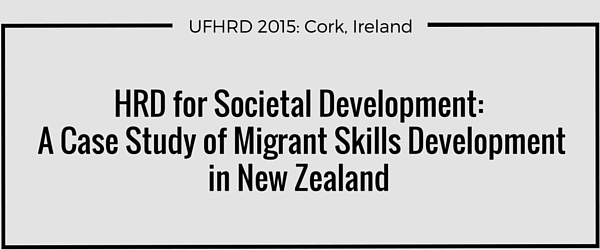HRD for Societal Development: A Case Study of Migrant Skills Development in New Zealand
Purpose: The purpose of this case study is to explore the use of HRD in Canterbury Business Association’s efforts to develop immigrants who possess advanced skills and higher education for local employment opportunities.
Design/ Methodology: A qualitative case study approach.
Findings: Analysis from this case study revealed four themes: (a) mentoring, (b) advocacy and resources, (c) diversity and culture and (d) women. The use of HRD was focused on employment and creating enterprises that will allow immigrants to be self-employed. This was primarily achieved through understanding the Migrant Mentoring Program and the Migrant Enterprise Development Program.
Research Implications: This case study presents another opportunity to theorize the use of HRD for Societal Development and to strengthen and transform traditional HRD theory into multilevel theory in a wider context (Kim, 2012b). This research expands HRD research to other populations during a time when education, employment and migration have become global policy level issues. It adds to the qualitative literature on aspects of community and Societal Ddevelopment processes, especially among immigrant populations.
Practical Implications: HRD practitioners in Societal Development contexts can also gain their experience through trial and error and not only from formal exposure to the field of HRD because of the varied nature of issues they encounter. This will also enable them to expand the role of HRD into advocacy in the public space. This presents an opportunity for HRD professionals to improve their value proposition within and outside the organization while contributing to greater societal good (Griffiths & Koukpaki, 2012).
